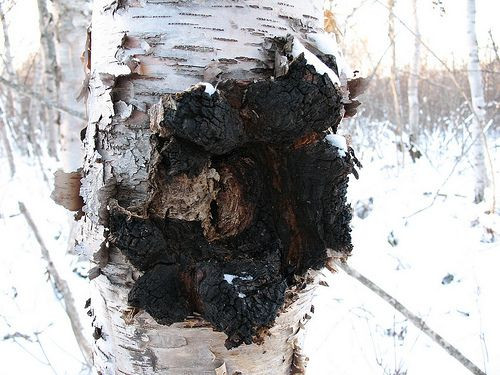Cure For AIDS Found In Folkloric Siberian Mushroom, Russian Institute Claims

Scientists from the Vector Institute near Novosibirsk, in Russia, claim to have found the potential cure for HIV/AIDS (human immunodeficiency virus/acquired immune deficiency syndrome) in a folk remedy mushroom called Chaga.
The strain of fungi is well-known around Siberia, and for centuries has been suspected by many a babushka as an effective cure for antiviral activity. Now, researchers are claiming the anecdotal claims have scientific basis, as the Chaga mushroom (Inonotus obliquus), which grows on the trunks of birch trees, contains high concentrations of betulinic acid. The acid has antiretroviral, anti-inflammatory, and recently discovered anticancer agents that Vector scientists are calling a “promising line of development.”
“Strains of these mushrooms demonstrated low toxicity and a strong antiviral effect,” the Siberian Times quoted a Vector statement as saying, noting the mushroom had particularly potent effects on smallpox, influenza, and HIV.
“We conducted research and for the first time we selected 82 strains of 33 types of fungi growing in South West Siberia,” a spokesperson for Vector said. “Chaga fungi strains – which are so well known around Siberia – showed the widest spectrum of antiviral activity.”
Russian folklore often speaks of Chaga in high regard, as it is popular as a dietary supplement and as a cultural icon, appearing as a cancer cure in Alexander Solzhenitsyn’s 1968 novel Cancer Ward. In the West, the mushroom has less scientific backing; New York’s Memorial Sloan-Kettering Cancer Center states on its site, “No clinical trials have been conducted to assess Chaga’s safety and efficacy for disease prevention or for the treatment of cancer.”
Meanwhile, the researchers at Vector maintain that the mushroom’s power as an anti-HIV and anti-AIDS medicine comes from its “anti-tumor” agents and “immune stimulating benefits.”
“Although relatively unheard of in mainstream media, the Chaga mushroom has been used in folk medicine for generations,” a Vector spokesperson told the Siberian Times. “Research has shown Chaga to be extremely effective in protecting cellular DNA from damaging free radicals” — molecular compounds that destroy cell membranes.
In Soviet times, the Vector research institute served as a biological weapons facility and stored deadly viruses, including those causing smallpox, the Wall Street Journal Emerging Europe blog reports.
Roughly 34.2 million people around the world suffer from HIV/AIDS. Since the epidemic began, nearly 30 million people with the disease have died worldwide, according the Centers for Disease Control and Prevention. Formally, HIV/AIDS is considered a global pandemic, as the disease has spread across multiple continents and still increases in prevalence in underdeveloped parts of the world.



























